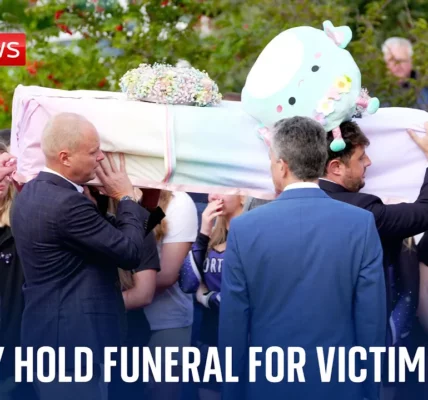UK Tonight: The Legacy of Muhammad Al-Fayed and Survivors’ Voices

This article delves into the shocking allegations against Muhammad Al-Fayed, the testimony of survivors like Chesca, and the ongoing societal impacts of such revelations, including the responses from organizations and communities across the UK.
Introduction
In recent weeks, the legacy of Muhammad Al-Fayed, a figure synonymous with luxury retail and former owner of Harrods, has come under intense scrutiny. Dozens of women have bravely stepped forward, sharing harrowing accounts of abuse at his hands. This article aims to provide a comprehensive overview of these allegations, the voices of the survivors, and the societal implications of this unfolding narrative. We will also explore related topics, including the challenges faced by victims seeking justice, the response of organizations like Harrods, and the broader context of accountability in cases of systemic abuse.
The Allegations Against Muhammad Al-Fayed
Muhammad Al-Fayed has been described as a “monster” by many who allege that he abused his power to exploit vulnerable women. Recent reports indicate that at least 37 women have come forward with allegations of sexual misconduct, which span several decades.
Survivors’ Accounts
Among the brave individuals sharing their stories is Chesca, who began working at Harrods at just 19 years old. In her testimony, she expressed her frustration at how Al-Fayed’s behavior had gone unchecked for years, allowing a culture of abuse to flourish within the organization.
- Chesca highlights the systemic failures that protected Al-Fayed.
- Survivors have often felt silenced and unsupported in their attempts to speak out.
- Many women have shared similar experiences, indicating a pattern of abuse.
The Impact on Survivors
The revelations surrounding Al-Fayed have reignited discussions about the treatment of survivors of abuse. Chesca’s story is emblematic of the struggles faced by many women who have come forward. Legal avenues have proven challenging, and the emotional toll has been significant.
Legal Challenges
Chesca discussed the difficulties she faced when she initially attempted to report her experience to the authorities. Despite approaching the police, there was a lack of support, and she felt her case would not hold up against such a powerful figure.
- Victims often face a daunting legal landscape when seeking justice.
- The reluctance of authorities to pursue cases against high-profile individuals can deter survivors from coming forward.
- There is a pressing need for legal reforms to better support victims.
Community Support and Solidarity
As more survivors have come forward, community support has become increasingly vital. Organizations like Justice for Harrods Survivors are working tirelessly to provide a platform for victims and advocate for change.
Organizational Response and Accountability
In light of the allegations, Harrods has issued statements attempting to distance itself from Al-Fayed’s legacy. The new owners have promised to establish a fair settlement process for victims, but questions remain about the adequacy of their response.
Harrods’ Position
Harrods has acknowledged the serious nature of the allegations and has committed to working with external councils to ensure transparency in their settlement processes. However, many survivors and advocates feel that their responses have been insufficient.
- Calls for more robust actions from Harrods to support survivors.
- Criticism regarding the pace and transparency of their settlement processes.
Broader Implications for Society
The revelations surrounding Al-Fayed’s alleged abuse highlight systemic issues within organizations that have historically enabled such behavior. The need for cultural change and better support systems for victims is more urgent than ever.
Cultural Change
Society must confront the issues of power dynamics and accountability, particularly within industries that have historically silenced victims. The bravery of women coming forward serves as a catalyst for change.
Support for Long COVID Patients
In a related context, the ongoing struggle of individuals suffering from long COVID illustrates the importance of societal support systems. Former athletes like Una Cousins have shared their experiences, advocating for better recognition and treatment of long COVID, drawing parallels with the challenges faced by abuse survivors.
Conclusion
The allegations against Muhammad Al-Fayed and the stories of survivors like Chesca and Una Cousins serve as powerful reminders of the urgent need for societal change. As more women find the courage to speak out, it becomes imperative for organizations and communities to rally around them, ensuring their stories are heard and justice is sought. The road to healing may be long, but it is paved with solidarity, support, and a commitment to accountability. We encourage anyone affected by these issues to reach out for help and to share their stories, as every voice matters in the fight for justice.
“`




